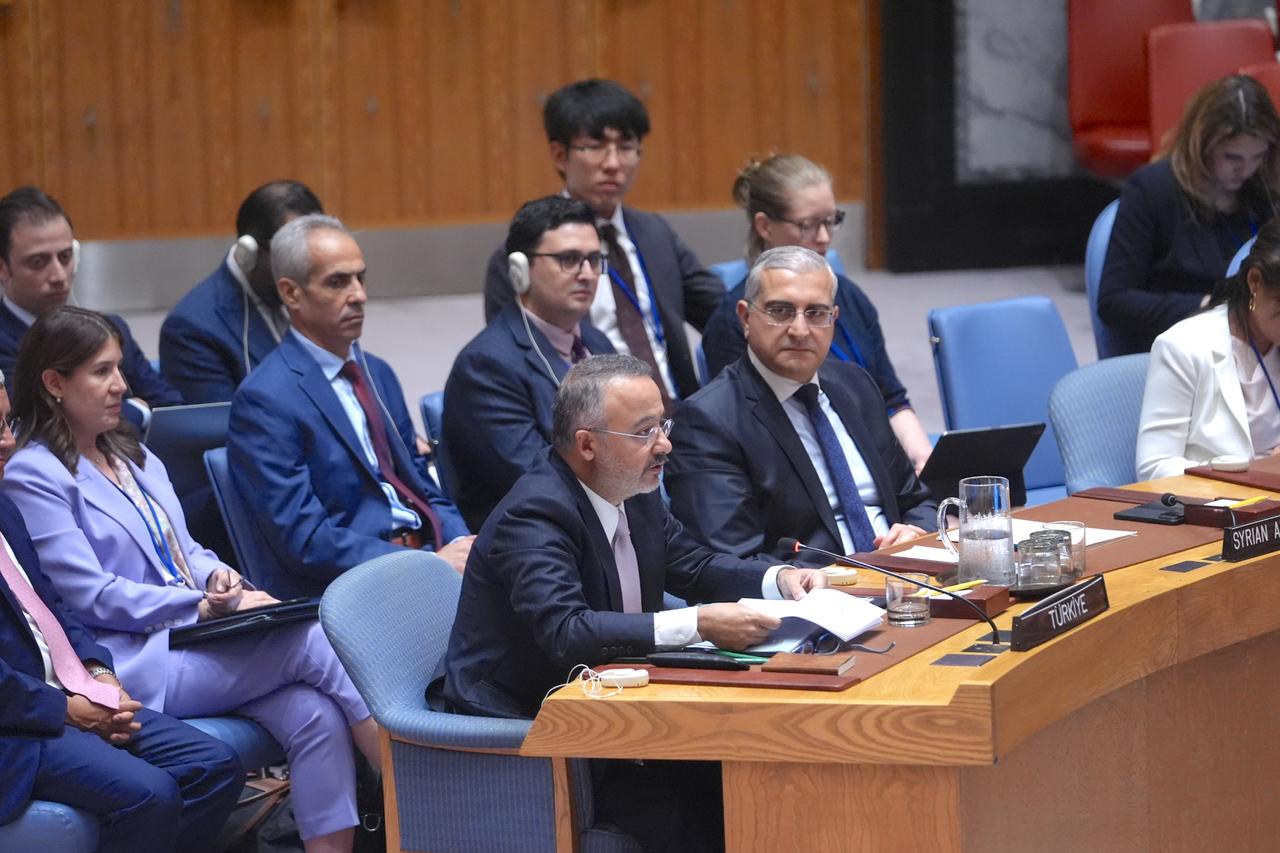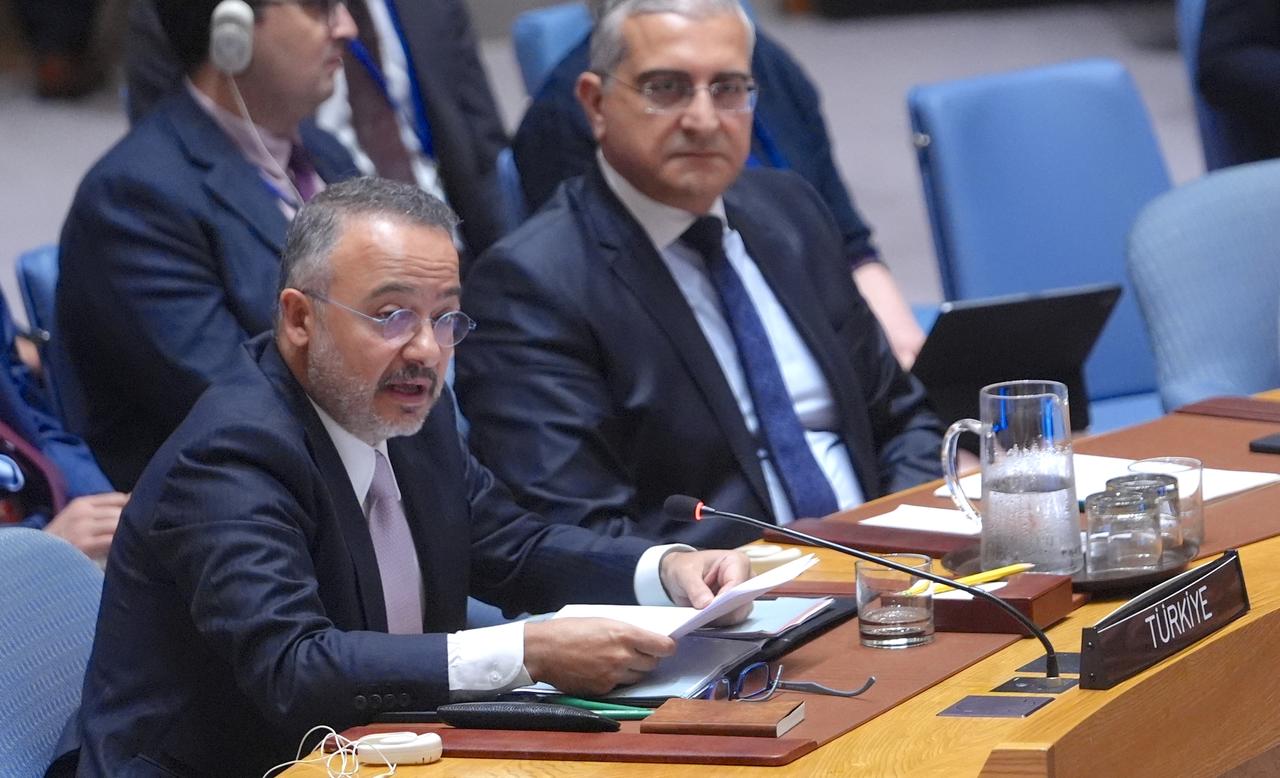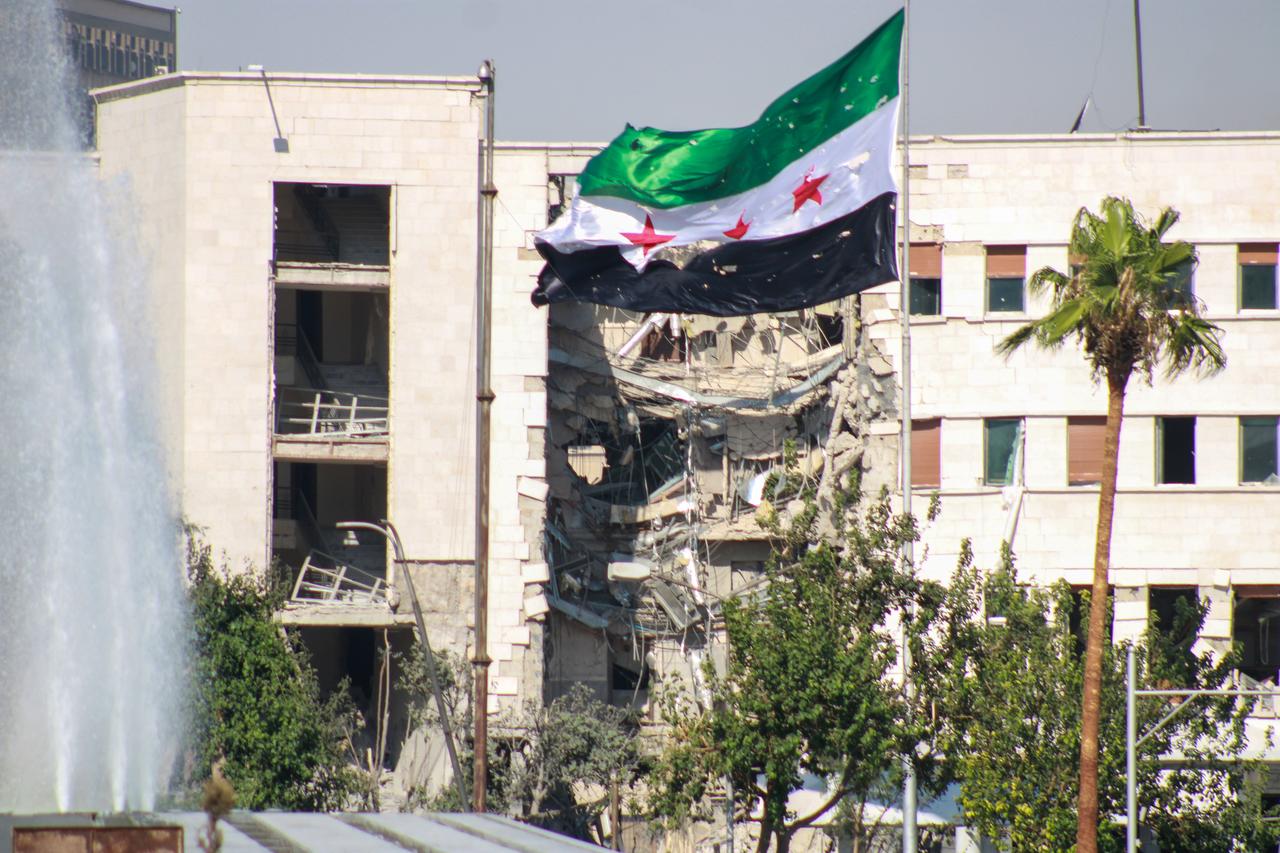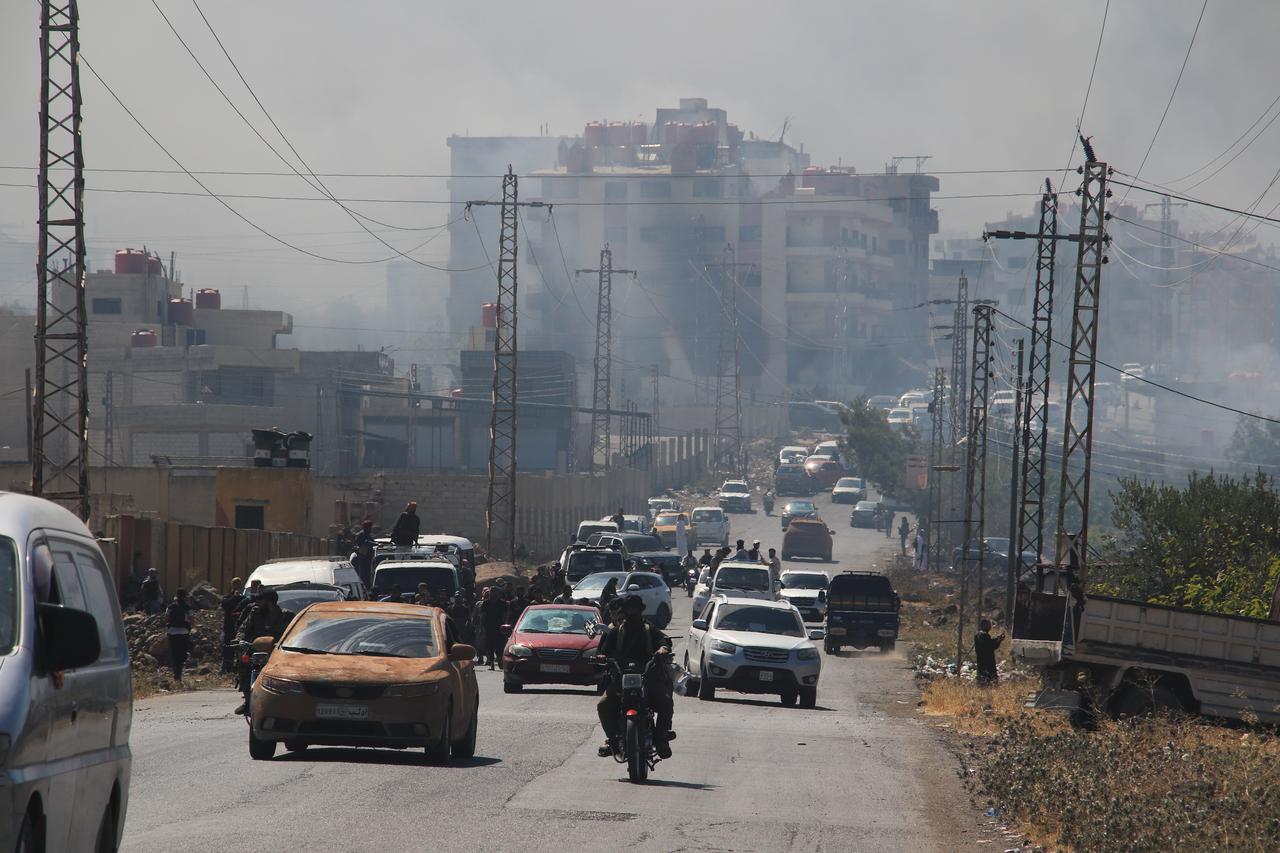
Türkiye's Deputy Foreign Minister Nuh Yilmaz called on Israel to refrain from aggression in Syria, stating that de-escalation and restraint are essential for Syria's progress toward stability.
Speaking on Monday at the United Nations Security Council meeting on "The Situation in the Middle East," Yilmaz addressed recent developments in Syria, particularly tensions in Sweida province and other regions.

"Going forward, it is important to ensure de-escalation and that Israel refrains from aggression, and to support the Syrian government's efforts to ensure calm in Sweida and prevent civilian casualties," Yilmaz said during the conference.
The deputy minister warned that the situation in Sweida has become dangerous due to what he called Israel's "unprovoked attacks" on the Syrian government and its authority.
"Israel's disrespect for law, order and state sovereignty has reached a new dimension with its recent attacks on the Presidential complex and the Ministry of Defense," Yilmaz stated.

Yilmaz cautioned that certain elements might be inclined to draw "wrong lessons" from events in Sweida, specifically naming the SDF as "definitely one of them."
"No one should be encouraged to exploit some shortcomings to push Syria toward division and fragmentation," he emphasized.
The Turkish official noted that Syria has made "remarkable progress" since the revolution, with Syrians' return to their homeland continuing at a positive pace. He praised the Syrian administration's inclusive efforts during the transition period, saying it has taken "concrete steps to bring together all components of Syrian society on the basis of equal citizenship."
Yilmaz later added Ankara's support for Syria's peace and reconstruction efforts from the beginning, expressing satisfaction with the progress made so far.
"We must stand in strong solidarity with the Syrian government and people to ensure that the old Syria, whose name has become synonymous with a failed narco-state exporting instability, terrorism and mass migration, is buried in history forever," Yilmaz said.

In a separate session at the U.N., Yilmaz also co-chaired a working group titled “Preserving the Two-State Solution” alongside Ireland as part of the High-Level International Conference on the peaceful resolution of the Palestinian issue.
"The biggest obstacle to the Palestinian state is the ongoing occupation," Yilmaz stated, noting this was a consensus view among participants.
The deputy minister welcomed France's announcement regarding recognition of Palestine and expressed hope that other countries would follow suit soon. Yilmaz also highlighted that discussions also focused on Israel’s continued threat to annex Palestinian territories and the need for strong, proportionate responses.
Mechanisms were proposed to uphold international law and humanitarian law, he said.
"In addition to the dire humanitarian situation in Gaza, Israel’s illegal settlements, land confiscations, and home demolitions in the West Bank and East Jerusalem require urgent attention," Yilmaz added.
He emphasized that Israel may face “coercive measures” as a state actor supporting illegal settlements.
"Israel’s actions to displace, deport, and exile the Palestinian people from their land must be stopped without delay. We cannot imagine a Palestinian state without a Palestinian nation," he stated.
He closed with a direct message to the international community: "To protect the vision of a two-state solution, uphold legal and humanitarian principles, and move beyond expressions of concern, we must act urgently and decisively to implement accountability mechanisms."
Meanwhile, the United States rejected the U.N. conference, with State Department Spokesperson Tammy Bruce calling it "unproductive and untimely."
"Far from promoting peace, this conference will prolong the war, embolden Hamas, and undermine realistic efforts to achieve peace," Bruce said in a written statement, adding that the U.S. focus remains on "serious diplomacy, not staged conferences that pretend to matter."
"This week, the UN in New York will host a counterproductive and untimely conference on the two-state solution. Far from promoting peace, this conference will prolong the war, embolden Hamas, and undermine realistic efforts for peace," Bruce said.
“Our focus is serious diplomacy—not stage-managed conferences that pretend to matter," she added.